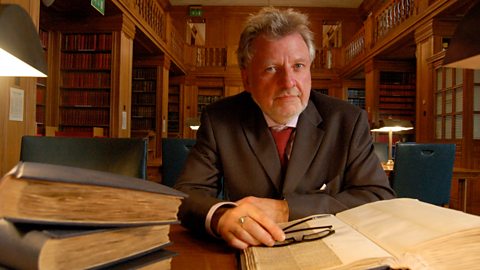Secondary History
Medieval England and the wider world 1066 -1509
1066 and the Norman Conquest
A six-part animated series that explores the key events of the battle for the throne in 1066 and how William the Conqueror secured power.
- AttributionKS3/GCSE • Ages 11-16
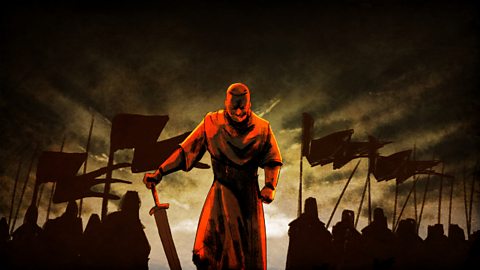
Why should I care about 1066?
An interactive article exploring the legacy of this brutal conquest - the last time England was successfully invaded – which still pervades many aspects of our language and culture today.
- AttributionKS3/GCSE • Ages 11-16
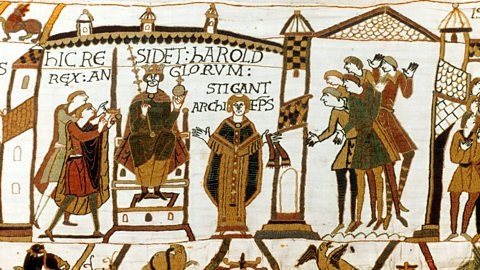
The Plantagenets
Professor Robert Bartlett tells the extraordinary story of England's most dysfunctional, yet longest ruling, royal dynasty, beginning in 1128.
- AttributionKS3/GCSE • Ages 11-16
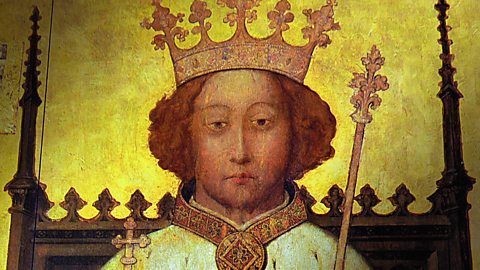
Magna Carta
A look at what sources can tell us about the importance and origins of Magna Carta.
- AttributionKS3 • Ages 11-16
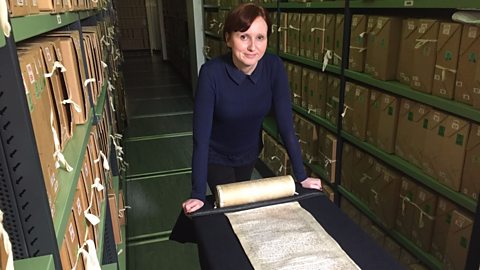
Medieval antisemitism
A look at what sources can reveal about Antisemitism in Medieval times.
- AttributionKS3 • Ages 11-14
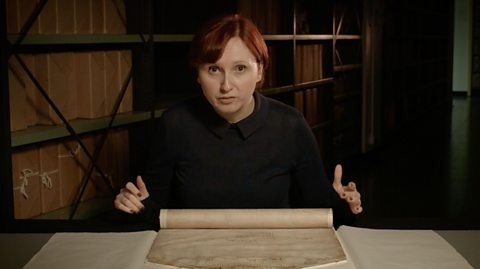
William Wallace
A look at how sources can help separate the myth from the man that is William Wallace.
- AttributionKS3 • Ages 11-14
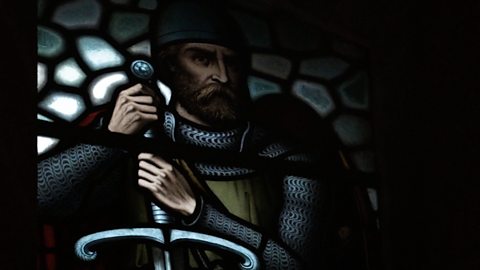
Secrets of the Castle
Historian Ruth Goodman and archaeologists Tom Pinfold and Peter Ginn examine how the castles of the 13th century, known as the golden age of castle building, were constructed.
- AttributionKS3 • Ages 11-16
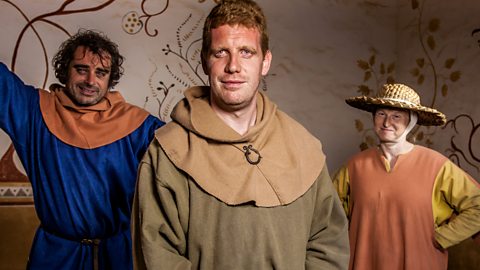
Britain 1509 -1745
Elizabethan England and the Tudor world
Historian Ian Mortimer transports viewers back to Elizabethan England and reveals, in vivid detail, a living, breathing Tudor world.
- AttributionKS3 • Ages 11-14
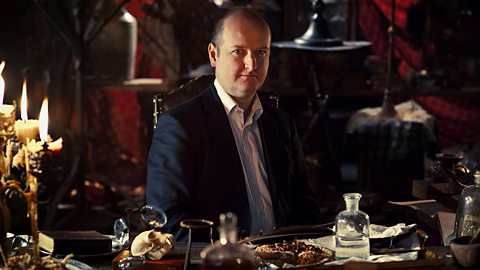
The story of black migrants in Tudor England
David Olusoga explores the lives of some of the hundreds of black migrants who were in England during the Tudor period.
- AttributionKS3/GCSE • Ages 11-16
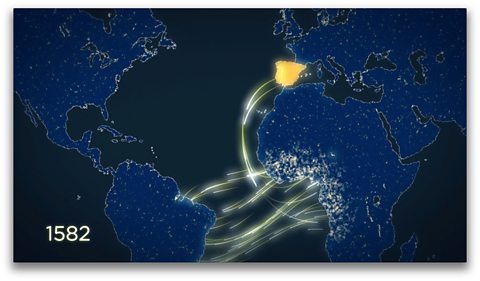
How did Henry VIII use sex and power to secure his legacy?
This interactive guide explores the lives of Henry VIII, Anne Boleyn and Thomas Cromwell, and looks at how they shaped Tudor England.
- AttributionKS3/GCSE • Ages 11-16
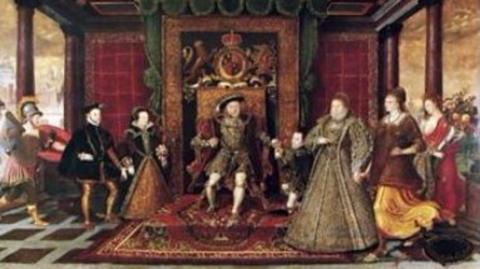
Elizabeth I
Dr Sam Caslin begins her investigation into the personality of Elizabeth I by examining a source held at The National Archives at Kew.
- AttributionKS3 • Ages 11-14
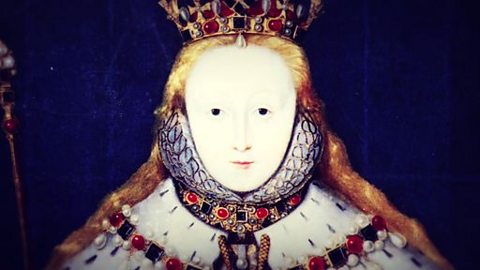
What did King Henry VIII really want from a wife?
What did the Tudor king Henry VIII want from his six wives? And why would he execute them, like Anne Boleyn, or divorce them, like Catherine of Aragon?
- AttributionKS3/GCSE • Ages 11-16
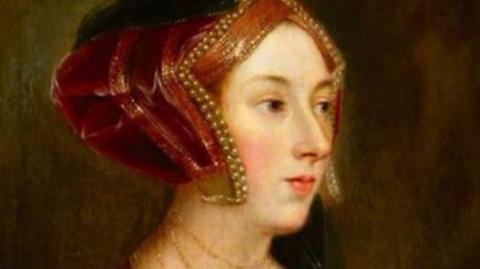
How could you survive in Tudor England?
An explainer article exploring how Tudor king Henry VIII ruled at a time when the average life expectancy was just 35 years old.
- AttributionKS3/GCSE • Ages 11-16
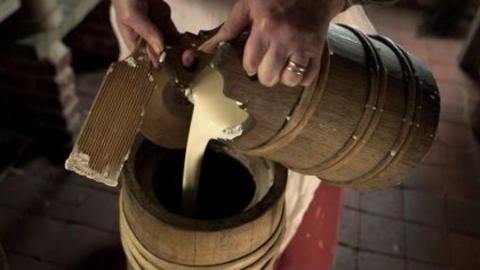
Guy Fawkes: Why do bonfires still burn 400 years on?
An interactive article looking at why we light Guy Fawkes effigies on bonfires on November 5th. And how Gunpowder Treason Day became fireworks night over 400 years.
- AttributionGCSE • Ages 14-16
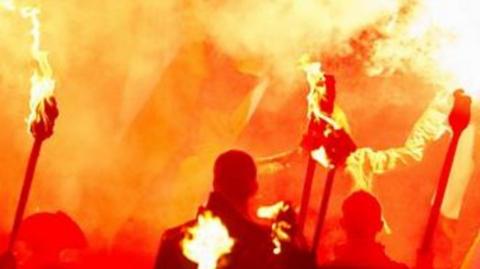
Britain and the wider world 1745 -1901
The East India Company
Dan Snow travels through India in the footsteps of the company that revolutionised the British lifestyle and laid the foundations of today's global trading systems.
- AttributionKS3 • Ages 11-14
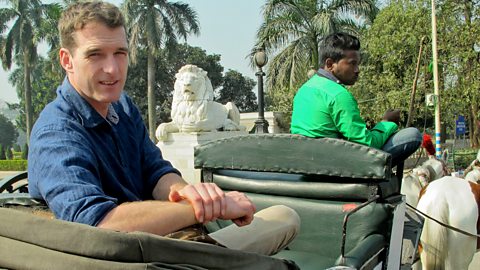
Why the industrial revolution happened in Britain
Professor Jeremy Black explains the unique economic, social and political factors that helped Britain transform itself almost entirely by the 19th century.
- AttributionKS3/GCSE • Ages 11-16

History of railways in Britain
Dan Snow examines the development of the railways from their beginnings as track-ways for coal carts in the early 18th century to the pivotal technology for modern Britain.
- AttributionKS3/GCSE • Ages 11-16
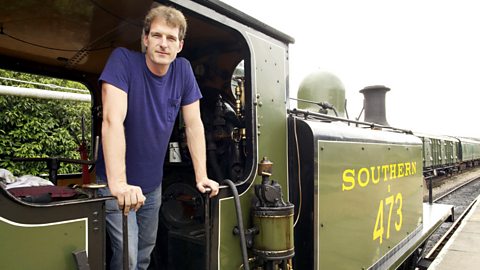
Migration
Including: the Palatines who migrated to Britain in the 1700s, Black people in Britain during the Atlantic slave trade era, and The Irish migrants who moved to Liverpool during the Industrial Revolution.
- AttributionKS3/GCSE • Ages 11-16
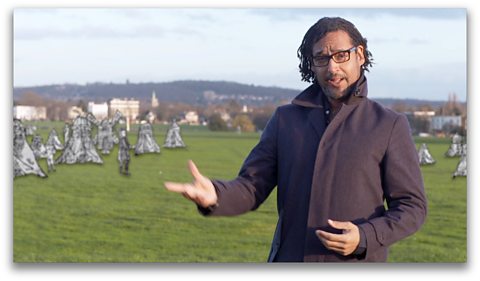
Slave owners and the abolition of slavery
Historian David Olusoga looks at: why slave owners opposed abolition, how British slavery owners fought for compensation, the Barbados Slave Code, Evidence of British slave ownership in the 1830`s, and the social and economic impact of slave ownership on British Society.
- AttributionKS3/GCSE • Ages 11-16
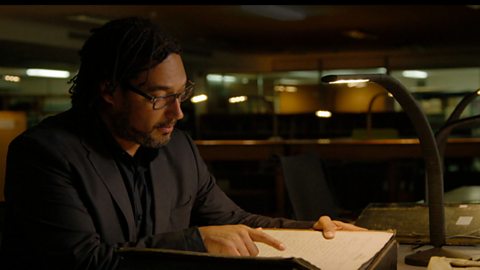
Young Victorian villains and the justice system
Short films exploring the stories of the 'young Victorian villains' and the strict justice system that decided their fate.
- AttributionKS3 • Ages 11-14
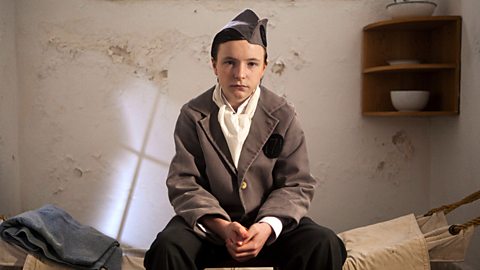
Manchester Cholera epidemic of 1832
Dramatisation of the Manchester Cholera Epidemic - the epidemic affected other parts of the UK too; this is an illustration of how Manchester was affected.
- AttributionKS3 • Ages 11-14
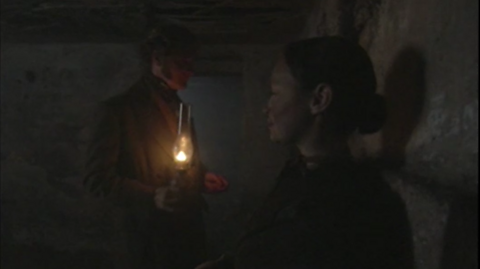
Britain, Europe and the wider world 1901 to the present day
Emmeline Pankhurst and The Suffragettes
Sally Lindsay takes a rare look at the personal loves, losses and political passions that transformed Emmeline Pankhurst from a working mum from Manchester into a militant activist.
- AttributionKS3 • Ages 11-14
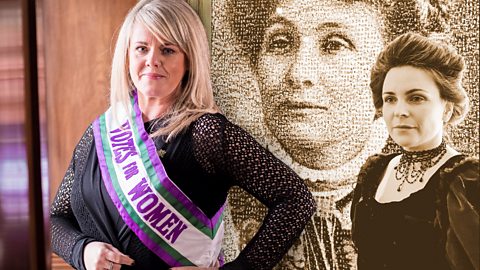
Forgotten Suffragettes
A short video about three significant suffragettes - Princess Sophia Duleep Singh, Annie Kenney and May Billinghurst - emphasising the diverse make-up of the women's suffrage movement.
- AttributionKS3 • Ages 11-14
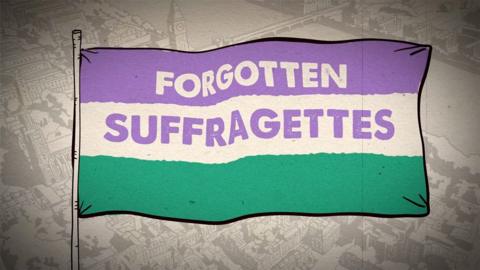
Women's Rights in the 20th century
Collection of 5 short clips looks at the way women's rights changed during the 20th century, including the Suffragettes, World Wars and the 1960s.
- AttributionKS3 • Ages 11-14
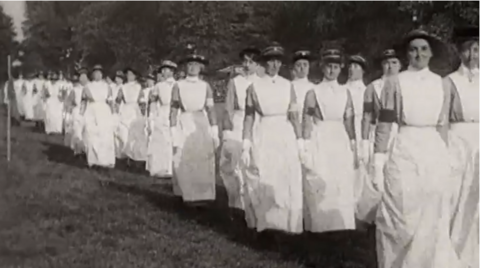
100 years of the women's movement
Gemma Cairney investigates how women fought for changes such as the right to vote, equal pay and birth control. She talks to women who were involved in fighting for equality in the workplace and other social freedoms.
- AttributionGCSE • Ages 14-16
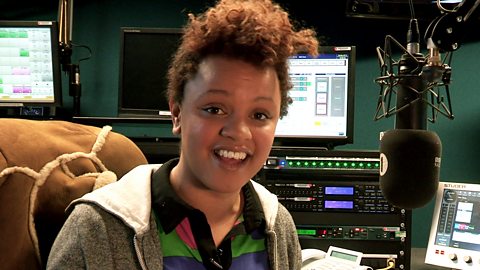
World War One
A collection of video resources and interactive articles for secondary schools, perfect for use with students studying World War One.
- AttributionKS3/GCSE • Ages 11-16
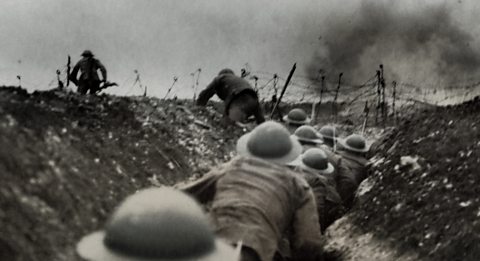
World War Two
A collection of video resources for secondary schools, perfect for use with students studying World War Two.
- AttributionKS3/GCSE • Ages 11-16
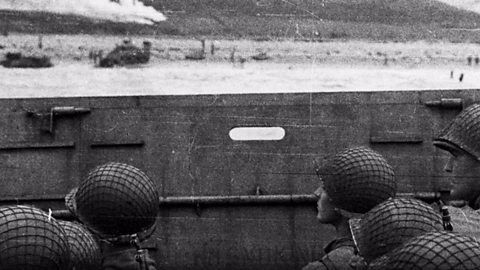
Arab Israeli conflict
Noel Thompson looks at the history of the Arab Israeli conflict during the 20th century, examining the key events and personalities on both sides of the conflict and tracing the issues of the country.
- AttributionGCSE • Ages 14-16

Icons of the twentieth century
Profiles of Neil Armstrong, Marie Curie, Dr Martin Luther King, Nelson Mandela, and Helen Keller.
- AttributionKS3 • Ages 11-14
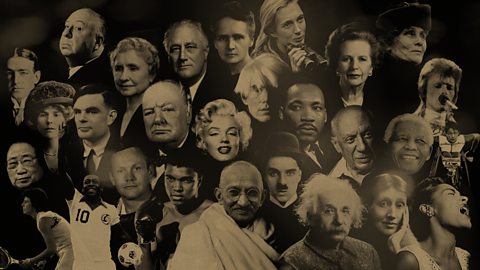
Brixton uprising
This short film looks at the New Cross house fire of 1981, and the protests, unrest and accusations of indifference that followed and defined race relations for a generation.
- AttributionKS3/GCSE • Ages 11-16
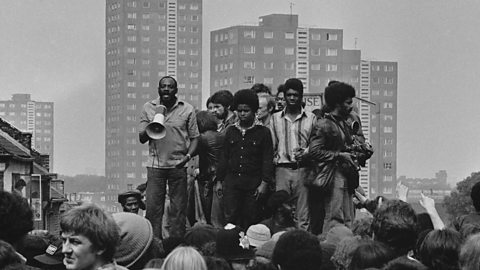
Subnormal - A British Scandal
This short film examines how black children in the 1960s and 1970s were disproportionately sent to schools for the so-called ‘educationally subnormal’.
- AttributionKS3/GCSE • Ages 11-16
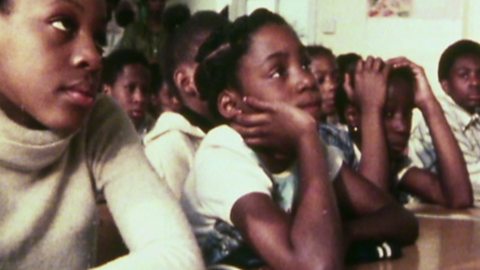
Black Power - A British Story of Resistance
This short film looks at the Black Power movement in the 1960s in the UK, surveying both the individuals and the cultural forces that defined the era.
- AttributionKS3/GCSE • Ages 11-16

Small Axe: London's West Indian community during the 1960s, 1970s and 1980s
Short films exploring the lives of London's West Indian community during the 1960s, 70s and 80s, produced alongside the BBC One collection of films directed by Oscar winner Steve McQueen.
- AttributionKS3/GCSE • Ages 11-16

The Cuban Missile Crisis
Exploring what historical sources reveal about how close Britain came to nuclear war in the early 1960s.
- AttributionKS3 • Ages 11-14
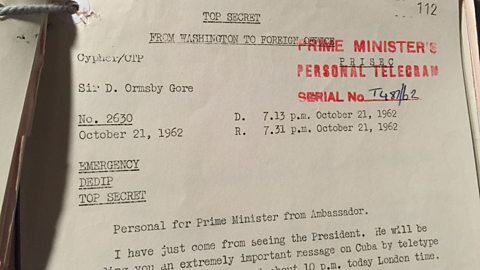
What was life like for young people in 1960s Britain?
An exploration of historical sources from the 1960s reveals deep seated changes in attitudes among young people.
- AttributionKS3 • Ages 11-14
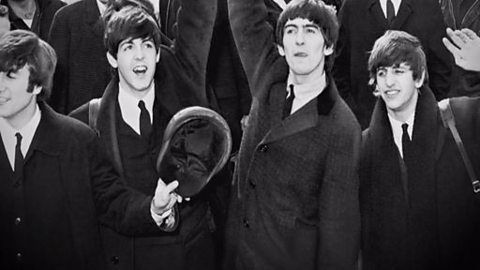
Exploring the Past - Post War Britain
Six British 15-year-olds trace their own family history back to the post war period of the 1950s and 60s.
- AttributionKS3/GCSE • Ages 11-16
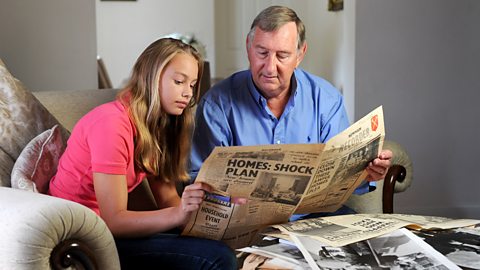
History themes and topics
Explainers for KS3 History topics
Concise explanations of: Government, Communism, Capitalism, Revolution, Suffrage, Migration, Parliament, Fascism, Empire and Industrialisation.
- AttributionKS3 • Ages 11-14
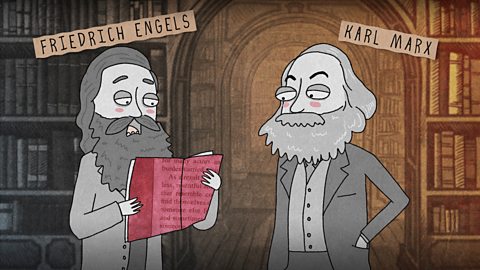
Stories of women that have made and changed human history
Including: Buddhism and Shinto • Confucianism • Where did the veil originate from? • Ancient Greece • USSR • Madame C. J. Walker, the first female African American millionaire • The contraceptive pill • Nur Jahan and the Mughal Empire • French Revolution • Witch hunts • Equality in the church • Foot binding in China
- AttributionKS3/GCSE • Ages 11-16
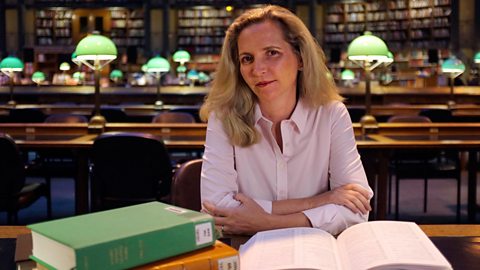
Medicine Through Time
A series of animated films looking at the development of medicine and some of the significant individuals.
- AttributionKS3/GCSE • Ages 11-16
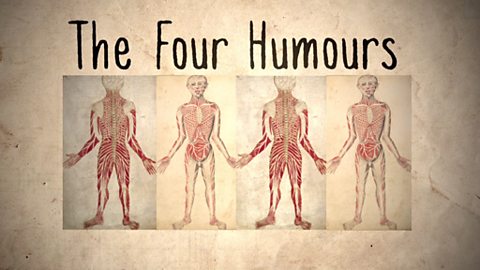
Andrew Marr's History of the World
Russian Serfs • Hitler's rise to power • China's Cultural Revolution • The French Revolution • The Industrial Revolution • Gandhi • Development of the contraceptive pill • American Civil War • The Atomic bomb • Alexander the Great
- AttributionKS3/GCSE • Ages 11-16
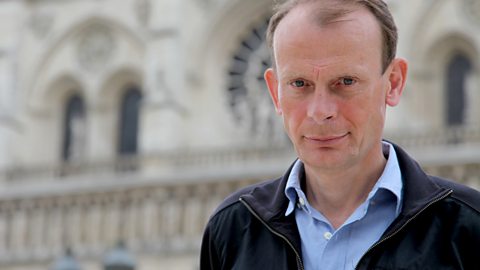
ClueTubers - Exploring historical locations
Can be used as part of a thematic or depth study and can act as initial stimulus material to inspire curiosity and help students to refine and develop perceptive questions about their studies.
- AttributionKS3/GCSE • Ages 11-16
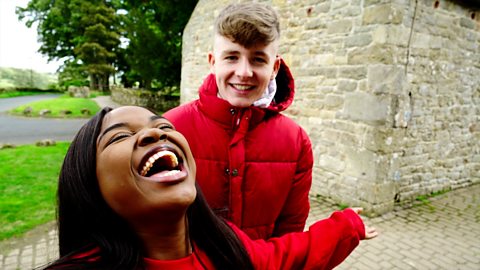
History of Early Civilisations: Maya and Baghdad
A series of short BBC films about the history of early civilisations, including the Maya civilisation and the Islamic Golden Age.
- AttributionKS3 • Ages 11-14
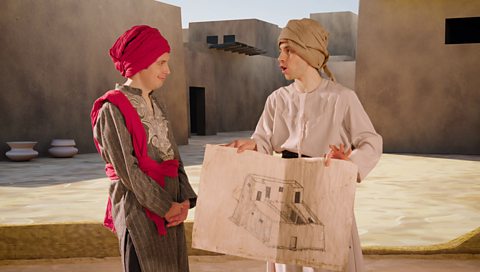
Exploring the past: Protest - Peterloo and Jarrow
Young people investigate the 1819 Peterloo Massacre in Manchester and the Jarrow March of 1936.
- AttributionGCSE • Ages 14-16
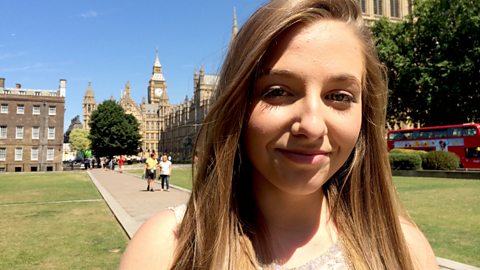
The Genius of Invention
Michael Mosley, Cassie Newland and Mark Miodownik examine the inventions that led to the electrical, the transport and the communication revolutions that shaped the modern world.
- AttributionGCSE • Ages 14-16
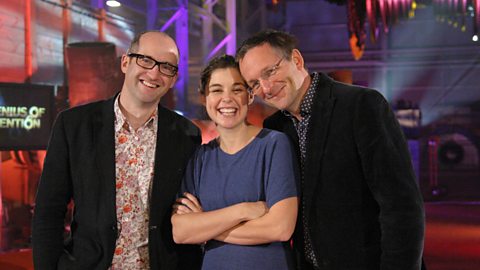
People Power
A collection of interactive articles about the people, movements and projects that have improved our lives.
- AttributionKS3/GCSE • Ages 11-16

Hunting for History - using sources
Dr Sam Caslin explores sources from The National Archives in Kew looking at their importance and using them to investigate key historical events.
- AttributionKS3 • Ages 11-14

Vikings
Neil Oliver looks at how Vikings lived, traveled and traded as well as how they invaded and created settlements.
- AttributionKS3 • Ages 11-14
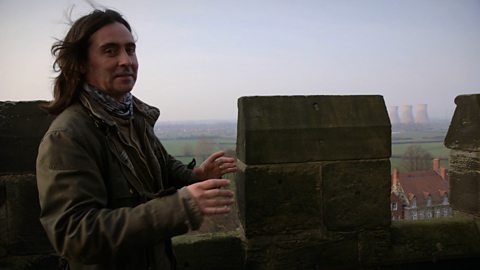
The story of China in the 19th / 20th century
The First Opium War, 1838-1842 • The Taiping Rebellion, 1850-1864 • The Rise of Mao ZeDong
- AttributionKS3/GCSE • Ages 11-16
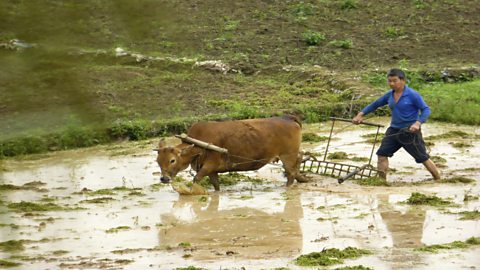
The history of the law
A series of short films in which barrister Harry Potter looks at the history of English justice. This series looks at English justice from the early concept of compensation, through to the development of the jury to the founding of the police.
- AttributionGCSE • Ages 14-16
